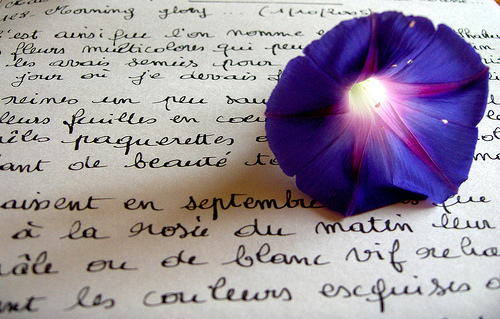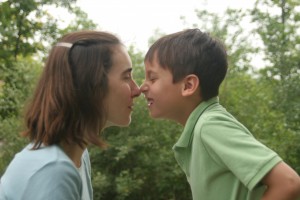
Opinion
The Art of Disability Poetry
The winners of the 2011 Inglis House Poetry Contest were announced in mid-June. No, I didn’t win - not even close. This contest is unique in the literary world because it focuses on the subject of disabilities. It is organized by a group of writers with disabilities who reside at Inglis House in Philadelphia and produce the quarterly literary journal, Wordgathering. The contest and the literary journal have the dual purpose of promoting the literary achievements of writers with disabilities and increasing awareness of disabilities through verse, fiction and essays. The contest has two categories: the first is open to all writers on the subject of disabilities, and the second is open to writers with disabilities on any subject. The first place winners were both remarkable pieces. In Category 1, the winning poem offered a first-person perspective on synaesthesia, a feature of many neurological conditions, in an experimental poetic style. In Category 2, the poet wrote powerfully about his hand as function and symbol.I first became interested in the genre of disability poetry when my son was going through the process of diagnosis. I was flipping through a magazine in the doctor’s waiting room when I came across a lovely poem by Barbara Crooker, and the little byline at the end of the poem mentioned that she had a son with autism. I looked up the poet when I got home, and found that she had published and edited volumes of poetry, in addition to having poems appear in all types of periodicals. I wanted to learn more. I knew there were other parents of children with special needs as well as adults with the same disability as my son creating poetry out there somewhere.
Why?
Writing poetry has many benefits for individuals with disabilities and their caregivers. Here are some good reasons to get started: 1. Outreach: When I read Barbara Crooker’s poem years ago, it was as if she was speaking to me directly and personally encouraging me. As humans, we are born with the need to connect with each other, and poetry has been a portal to human connection almost since the beginnings of spoken language, long before written language was developed. 2. Catharsis, or emotional cleansing: Many therapists recommend writing about emotions as a way to process positive or negative events. Writing poems can be a way of journaling with a tight economy of words. 3. Self-Empowerment: By trimming away the chatter of everyday life, inner truths can be revealed in verse. 4. Verbal Scrapbooking: Poems are also similar to scrapbooks, because they can become a written snapshot of a pivotal moment. Poems can help create a unique personal history when experiences are carefully pondered and re-considered.How?
Poetry does not have to be clever or complicated. In fact, poetry should ideally use the simplest possible language. Sometimes following a pre-determined structure can help get those creative juices flowing. I helped my son write some acrostic poems about his observations of the changing seasons. I had him write the name of the season in a vertical line, then I prompted him to think about his experiences and produce a phrase that started with the letter on each line: Fall First it rains and gets colder And we put away summer toys Leaves fall off the trees Let's go to the cider mill. Another simple structure is a haiku, just 3 lines long. The first line has 5 syllables, the second line has 7 syllables and the third line has 5 syllables - no rhyming required, though alliteration and graceful word flow add a nice flourish. In traditional haiku, objectivity is prized and the main idea is to freeze a moment in time or a moment of awareness. I jotted down this haiku after my son had a big meltdown; while I held him in my arms, his mood abruptly changed from weeping to joking. Rolling tears Rolling tears recall Recent but forgotten wrongs Even as he smiles. My preferred poetry style is the prose-poem or story-poem. Much of what my son says is scripted language used metaphorically, but sometimes he says something spontaneous and original that seems to come from deep inside. I try to write down these comments, and later I form a story around his quote to capture the context. I do my best to cut back on sentimentality, and I rely on a thesaurus to prune unnecessary words while highlighting the overall mood. On my son’s most tumultuous days, I treasure these joyful recollections. The Breeze In My Hair “I want to feel the breeze in my hair today.” Refusing to wear his hood in cool weather, His words delight me, a gift Unhoped-for in the dark winter of disability. Excitedly he helps me dress the baby With mittened hands and a giggle, Our thoughts flow freely between us In each glance, in that sweet intangible breeze. Studying my smile with wondering eyes, His tiny brother says, “Oonk,” Answered by my kiss, scooped up Into the sunshine of early spring. If you think that no one would ever want to read a poem about your experience with disability, I can assure you that you are wrong. Even though I did not win the 2011 Inglis House Poetry Contest, my poems on perseveration and night-waking were accepted for publication in the next issue of Wordgathering. Perhaps your poem will be published, too...but you’ll never know unless you try.Photo Image Credit: Flickr/Christine Lebrasseur



